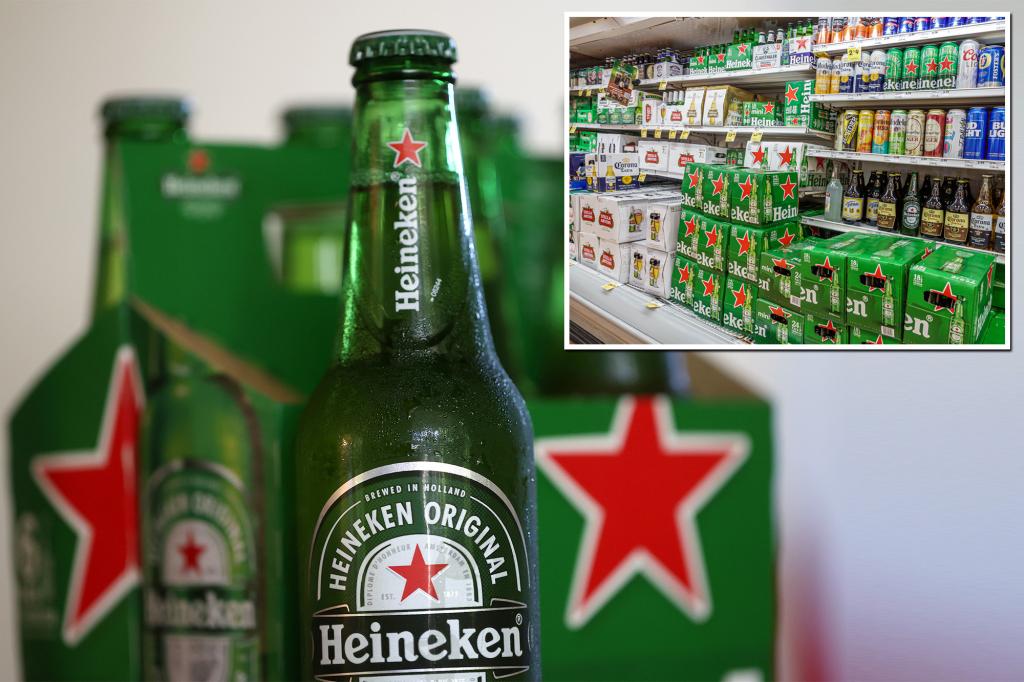Shares in Dutch brewer Heineken fell nearly 10 percent on Monday after hopes of a boost in beer sales from sports failed to materialize and the company took a roughly $1 billion write-down on its China investments.
The Dutch manufacturer of Europe's top-selling large vehicles raised its full-year operating profit forecast, but some analysts said it was still not as strong as expected.
Heineken had hoped that the month-long European soccer championships in Germany and the Paris Olympics would boost sales, but beer volume rose just 2.1 percent in the first half of the year, below the 3.4 percent that analysts had expected.
“Usually big sporting events like the EuroCup have a positive impact, but the weather has been well below the long-term average, below last year as well, which is affecting our business,” Chief Executive Dolf van den Brink said.
First-half revenues came to €17.8 billion, up 2.2% compared to the same period last year.
Operating profit before special items and amortization increased by 12.5% to EUR 1.5 billion.
European beer sales rose 0.6% in the first half of the year, below the 2% growth analysts had expected.
In the Americas, sales volumes increased 1.1%, below expectations of a 3.1% increase. The company attributed the disappointing sales to lower shipments to U.S. wholesalers, although it saw growth in Brazil and Mexico.
Heineken revised its full-year operating profit growth guidance from a low single digit range to a high single digit range of 4 to 8 percent.
The company also took a $948 million impairment write-down on its investment in state-owned China Resources Brewery, China's largest brewer, whose shares have fallen along with demand. Heineken now owns a 40% stake in the Chinese company.
The loss took the company's first-half net loss to 95 million euros, down from a profit of 1.1 billion euros in the same period last year.
The company, which owns brands such as Amstel and Red Stripe, is still struggling to recover from big price hikes last year, when it faced backlash after raising the cost of packaged goods and draft beer by an average of 15.8 percent.
After Heineken executives made upbeat comments about the company's performance in a recent conference call, the company revealed that second-quarter profit fell short of analysts' expectations, likely contributing to the drop in its shares.
“The results were below expectations, suggesting a gap between the company's messaging and analyst expectations,” Barclays analyst Laurence Wyatt told the Financial Times.
Brewers cited volatility as a challenge in reporting their first-half results.
“Volatility remains real,” Heineken said, adding that “consumer confidence and economic conditions in developed markets remain below historical averages.”
Many companies in the food industry have struggled with lingering inflation and a slump in consumer spending on non-essential items. Fast-food chains, for example, are competing with each other by introducing affordable value menus to lure back customers.
“We plan to significantly increase investment in markets and distribution spending in the second half of the year, driven by strong increases in key markets,” van den Brink said in a statement.

